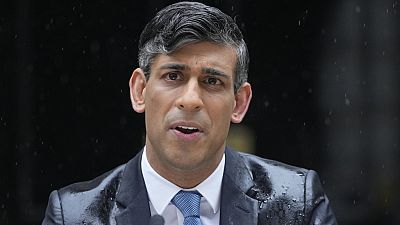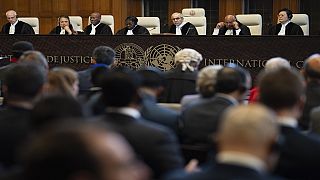United Kingdom
The United Kingdom is having its first election in five years, and it's a crucial one. The Conservative Party, in power since 2010, is facing a tough fight to stay in control. They've had a lot of problems and controversies over the past 14 years, making them an easy target for critics.
On the other side, the Labour Party also has issues. They need to shake off their image of irresponsible spending and show they can lead the country.
Both parties are also dealing with problems related to the Middle East conflict. The Conservatives are accused of Islamophobia, while Labour is trying to distance itself from antisemitism linked to their former leader, Jeremy Corbyn.
When is the election in the United Kingdom?
Prime Minister Rishi Sunak set July 4th as the date for the election, months ahead of when it was expected. He had until December to call an election that could have happened as late as Jan. 28, 2025.
READ ALSO:Austrian leader lauds UK's efforts on migration, cites its plan for deportations to Rwanda
The timing of the election is determined by the prime minister's calculation of the date most advantageous to the ruling Conservatives. It had been expected in the autumn when a number of economic factors were expected to have improved their chances, the Institute for Government, a London-based think tank, had said.
But favourable economic news on Wednesday, with inflation down to 2.3 percent, changed the narrative.
How does voting work?
People throughout the United Kingdom will choose all 650 members of the House of Commons for a term of up to five years. The party that commands a majority in the Commons, either alone or in coalition, will form the next government and its leader will be the prime minister.
READ ALSO:Moroccan asylum-seeker gets life sentence for killing UK retiree
That means the results will determine the political direction of the government, which has been led by the center-right Conservatives for the past 14 years. The center-left Labour Party is widely seen to be in the strongest position.
Who is running?
Sunak, a former Treasury chief who has been prime minister since October of 2022, is expected to lead his party into the election. His primary opponent will be Keir Starmer, a former director of public prosecutions in England and leader of the Labour Party since April 2020.
But other parties, some of which have strong regional support, could be crucial to forming a coalition government if no one wins an overall majority.
READ ALSO:Britain to appeal court decision that UK asylum law should not apply to Northern Ireland
The Scottish National Party, which campaigns for Scottish independence, the Liberal Democrats, and the Democratic Unionist Party, which seeks to maintain ties between Britain and Northern Ireland, are currently the three largest parties in Parliament after the Conservatives and Labour. Many observers suggest the new Reform Party, formed by Tory rebels, may siphon votes from the Conservatives.
What are the big issues at stake?
The economy: Britain has struggled with high inflation and slow economic growth, which have combined to make most people feel poorer. The Conservatives succeeded in meeting their goal of halving inflation, which peaked at 11.1% in October 2022, but the economy slipped into a technical recession in the last six months of 2023, raising questions about the government's economic policies.
READ ALSO: UK protesters block bus in attempt to stop asylum seekers from being moved to a barge
Immigration: Thousands of asylum seekers and economic migrants have crossed the English Channel in flimsy inflatable boats in recent years, raising concerns the government has lost control of Britain's borders. The Conservatives' signature policy for stopping the boats is a plan to deport some of these migrants to Rwanda. Critics say the plan violates international law, is inhumane, and will do nothing to stop people fleeing war, unrest and famine.
Healthcare: Britain's National Health Service, which provides free health care to everyone, is plagued with long waiting lists for everything from dental care to cancer treatment. Newspapers are filled with stories about seriously ill patients forced to wait hours for an ambulance, then longer still for a hospital bed.
The environment: Sunak has backtracked on a series of environmental commitments, pushing back the deadline for ending the sale of gasoline- and diesel-powered passenger vehicles and authorizing new oil drilling in the North Sea. Critics say these are the wrong policies at a time the world is trying to combat climate change.












Go to video
Pope Francis’ funeral to be held on Saturday 26 April at Saint Peter's Basilica
00:47
Ghana: President Mahama suspends Chief Justice Gertrude Torkornoo
Go to video
Police rescue 33 West Africans from a human trafficking scam in Ivory Coast
Go to video
Pope Francis' funeral scheduled Saturday April 26
Go to video
Al-Qaida-linked militants attack a strategic town in Somalia
Go to video
Trump administration threatens Harvard over foreign student visas and protest ties